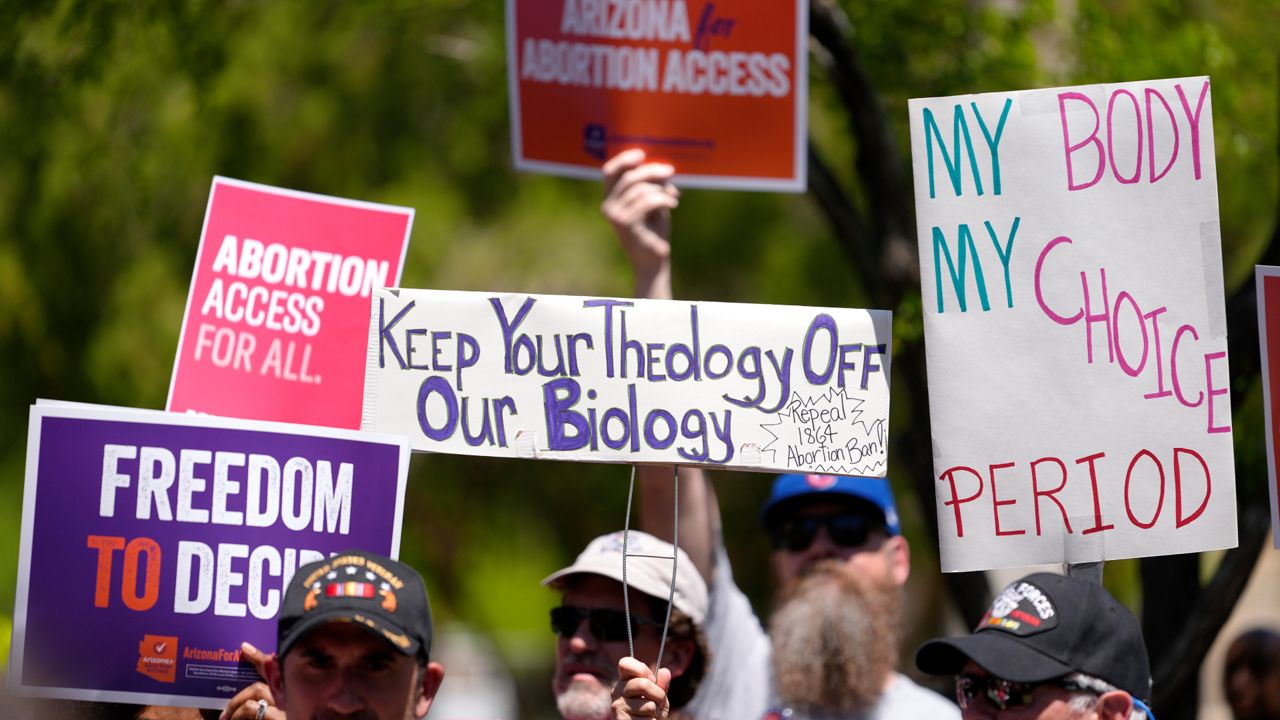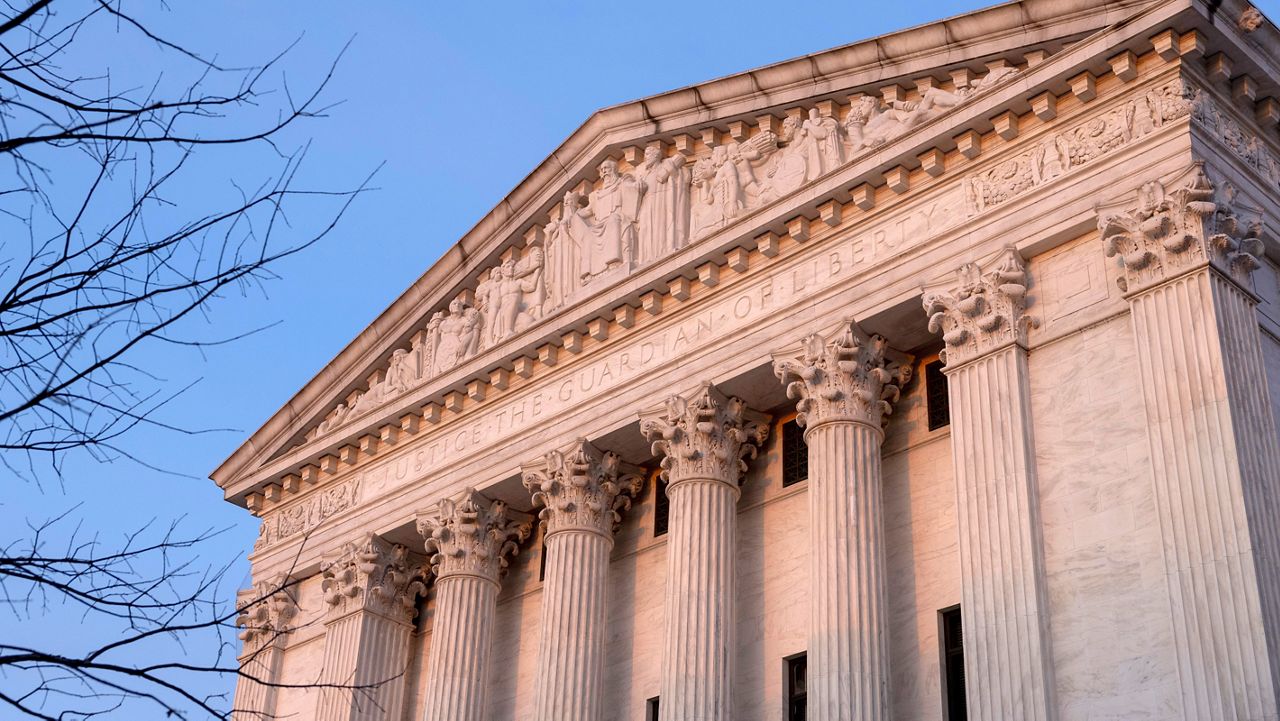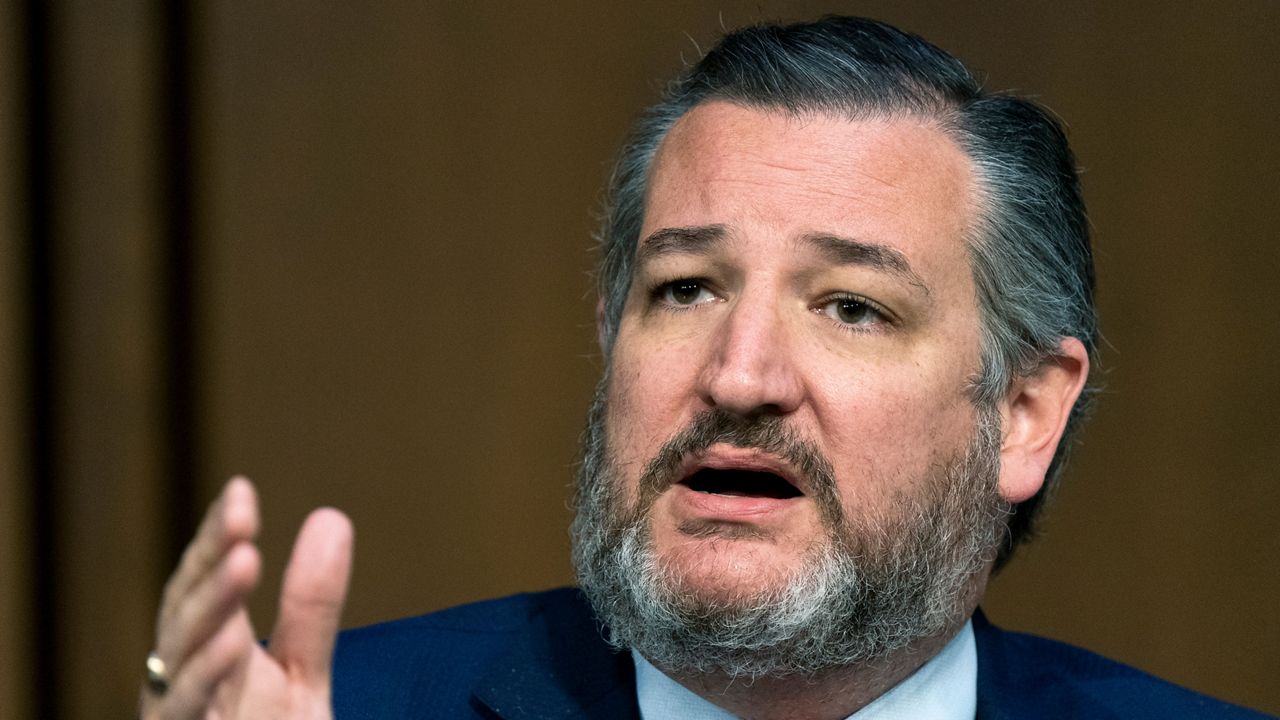Floridians set to vote Tuesday in the Presidential Preference Primary, but both former President Donald Trump and President Joe Biden are set to win their respective races.
Florida prepares for presidential primary
Soon, voting will be complete in Florida’s Presidential Preference Primary.
The results could be a good indicator of how confident Republicans are in former President Donald Trump’s bid for a second term.
The primary vote is essentially a formality. That’s because Trump already has more than enough delegates to secure the Republican nomination with 1,273 pledged so far.
Former South Carolina Gov. Nikki Haley and other candidates secured a combined 106.
In Florida, those candidates will still appear on the ballot, even though all of them except for Trump have dropped out or suspended their campaigns, including, of course, Gov. Ron DeSantis.
Republicans and the Trump campaign are defending comments from the former president in which he warned about what could happen if he isn’t returned to office.
“Now if I don’t get elected, it’s gonna be a bloodbath. That’s going to be the least of it. It’s going to be a bloodbath for the country,” Trump said.
Trump made the comments in Ohio on Saturday while talking about the impact of offshoring on the country’s auto industry and his plans to increase tariffs on foreign-made cars.
A spokesperson for his campaign said trump was talking about the impact of a second Biden term on the auto industry.
His former vice president defended the comments on CBS’ “Face the Nation” yesterday.
“The president was clearly talking about the impact of, of imports, devastating the American automotive industry,” former Vice President Mike Pense said.
Meanwhile, Pence is not endorsing trump. He said Trump is departing from the “Mainstream conservative agenda.”
Biden’s fundraising efforts for re-election are gaining momentum. His campaign brought in $53 million in February.
That amount, along with general Democratic fundraising, helped bring Biden’s total to $155 million at the end of the month.
That’s the most cash any Democratic presidential candidate has ever had at this stage in the election cycle.
Biden’s team is expected to scale up its operation in battleground states in the next couple of weeks.
That includes opening 100 offices and hiring 350 staffers.
Lawmakers react to Haiti concerns
With violence and political instability rocking Haiti, members of Congress from Florida are voicing concerns about the safety of Americans in the Caribbean nation.
They are clashing along party lines over the possibility that large numbers of Haitians will seek refuge in the U.S.
The situation in Haiti has been deteriorating for weeks after violent gangs began calling for the prime minister to resign.
He agreed to step down once a transitional presidential council is formed. But early Monday, gangs attacked two upscale neighborhoods in the capital, leaving at least a dozen people dead.
Over the weekend, the State Department stepped in to allow 30 Americans stuck in Haiti to fly to Miami.
Separately, the office of Republican Rep. Cory Mills of Florida has acted on its own to arrange the evacuation of Americans.
He posted a video Monday on social media of Americans he helped in Haiti boarding a helicopter.
Mills has been critical of the Biden Administration’s response to promptly evacuate U.S. citizens and said,” Americans deserve support from their government. Not the pattern of abandonment this administration has shown.”
During a State Department briefing Monday, a spokesperson said the department is working to help more Americans in Haiti.
“The number of individuals who have reached out to us through the crisis intake form is approaching 1,000. And we’re continuing to monitor the situation closely and evaluate the demand of US citizens, evaluate the overall security situation, evaluate what is feasible when it comes to commercial transportations options, what is feasible for other transportation solutions,” Principal Duty Spokesperson Vedant Patel said.
Republicans in Congress also are voicing concerns over what the crisis in Haiti could mean for possible migration into Florida as Haitians face violence and hunger at home.
A group of House Republicans led by Matt Gaetz sent a letter to President Joe Biden calling on him to authorize the Navy to stop migrants from reaching Florida.
Last week Gov. Ron DeSantis directed Florida law enforcement and National Guardsmen to Southern Florida to thwart a “potential influx.”
Democratic Rep. Maxwell Frost blasted DeSantis and called for expanded immigration policies to allow Haitians to temporarily live and work in the U.S.
“It’s our moral obligation to stand in solidarity with Haiti, provide humanitarian aid, help end the cycle of unrest, and support Haiti in its quest for autonomy and prosperity, which is why I continue to call for the re-designation of Temporary Protected Status for Haitians as the situation only worsens,” Frost said.
The State Department says Americans should not travel to Haiti.
They’re advising U.S. citizens to visit travel.state.gov to fill out a crisis intake form to request assistance.
Supreme Court appears likely to side with Biden administration in social media case
The Supreme Court seemed likely Monday to side with the Biden administration in a dispute with Republican-led states over how far the federal government can go to combat controversial social media posts on topics including COVID-19 and election security.
The justices seemed broadly skeptical during nearly two hours of arguments that a lawyer for Louisiana, Missouri and other parties presented accusing officials in the Democratic administration of leaning on the social media platforms to unconstitutionally squelch conservative points of view.
Lower courts have sided with the states, but the Supreme Court blocked those rulings while it considers the issue.
Several justices said they were concerned that common interactions between government officials and the platforms could be affected by a ruling for the states.
In one example, Justice Amy Coney Barrett expressed surprise when Louisiana Solicitor General J. Benjamin Aguiñaga questioned whether the FBI could call Facebook and X (formerly Twitter) to encourage them to take down posts that maliciously released someone's personal information without permission, the practice known as doxxing.
"Do you know how often the FBI makes those calls?" Barrett asked, suggesting they happen frequently.
The court's decision in this and other social media cases could set standards for free speech in the digital age. Last week, the court laid out standards for when public officials can block their social media followers. Less than a month ago, the court heard arguments over Republican-passed laws in Florida and Texas that prohibit large social media companies from taking down posts because of the views they express.
The cases over state laws and the one that was argued Monday are variations on the same theme, complaints that the platforms are censoring conservative viewpoints.
The states argue that White House communications staffers, the surgeon general, the FBI and the U.S. cybersecurity agency are among those who coerced changes in online content on social media platforms.
"It's a very, very threatening thing when the federal government uses the power and authority of the government to block people from exercising their freedom of speech," Louisiana Attorney General Liz Murrill said in a video her office posted online.
The administration responds that none of the actions the states complain about come close to problematic coercion. The states "still have not identified any instance in which any government official sought to coerce a platform's editorial decisions with a threat of adverse government action," wrote Solicitor General Elizabeth Prelogar, the administration's top Supreme Court lawyer. Prelogar wrote that states also can't "point to any evidence that the government ever imposed any sanction when the platforms declined to moderate content the government had flagged — as routinely occurred."
The companies themselves are not involved in the case.
Free speech advocates say the court should use the case to draw an appropriate line between the government's acceptable use of the bully pulpit and coercive threats to free speech.
"The government has no authority to threaten platforms into censoring protected speech, but it must have the ability to participate in public discourse so that it can effectively govern and inform the public of its views," Alex Abdo, litigation director of the Knight First Amendment Institute at Columbia University, said in a statement.
A panel of three judges on the New Orleans-based 5th U.S. Circuit Court of Appeals had ruled earlier that the Biden administration had probably brought unconstitutional pressure on the media platforms. The appellate panel said officials cannot attempt to "coerce or significantly encourage" changes in online content. The panel had previously narrowed a more sweeping order from a federal judge, who wanted to include even more government officials and prohibit mere encouragement of content changes.
A divided Supreme Court put the 5th Circuit ruling on hold in October, when it agreed to take up the case.
Justices Samuel Alito, Neil Gorsuch and Clarence Thomas would have rejected the emergency appeal from the Biden administration.
Alito wrote in dissent in October: "At this time in the history of our country, what the Court has done, I fear, will be seen by some as giving the Government a green light to use heavy-handed tactics to skew the presentation of views on the medium that increasingly dominates the dissemination of news. That is most unfortunate."









